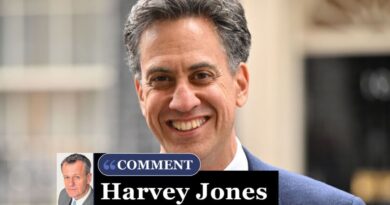DWP gives State Pension triple lock update as major review launched | Personal Finance | Finance
The Department for Work and Pensions (DWP) has given an update on the State Pension triple lock after announcing a major review. The DWP‘s Work and Pensions Secretary Liz Kendall on Monday (July 21) launched an official review into the State Pension age following concerns that future pensioners will be poorer than those retiring today unless changes are made.
The government warned that adults are not saving enough into private pensions for retirement, telling them they will be £800 worse off by 2050. To tackle the issue the DWP is reviving the Pensions Commission to make recommendations for change alongside an early review of the retirement age, which is due every six years, but the previous one was only completed in 2023. But in an update on the future of the triple lock, which is used to determine the State Pension rates at the start of every new tax year on April 6, Ms Kendal said a long-term commitment to this is not in the scope of the resurrected Pensions Commission.
The triple lock is used to set the new State Pension rates for each tax year based on whichever is the highest out of the consumer price index (CPI) measure of inflation (measured for September in the previous year), average wage growth between May and July of the previous year, or 2.5%.
Labour has pledged to keep the pensions triple lock until the end of the current Parliament but according to the Office for Budget Responsibility (OBR), the cost of the policy is estimated to reach £15.5 billion by 2030, raising concerns it may need to be scrapped.
The OBR recently said the triple lock, which was introduced in 2011, has already cost three times more than initially expected and suggested it was unaffordable in the long term.
But when asked if she thought it was impossible to maintain the triple lock guarantee given its cost and if she could guarantee it would be in Labour’s next manifesto, Ms Kendall said: “The triple lock is out of scope of the commission. We’ve got a very clear commitment to that for the entirety of this Parliament.
“And what we’re asking the commission to do is genuinely look medium to longer term, the middle of this century, and how the State Pension and second pensions work together.”
Ms Kendall added that the purpose of the Pension Commission being relaunched is to explore why people aren’t saving enough for retirement and to examine the pension system as a whole to determine what changes are needed.
She said: “People deserve to know that they will have a decent income in retirement – with all the security, dignity and freedom that brings. But the truth is, that is not the reality facing many people, especially if you’re low paid, or self-employed.
“The Pensions Commission laid the groundwork, and now, two decades later, we are reviving it to tackle the barriers that stop too many saving in the first place.”





